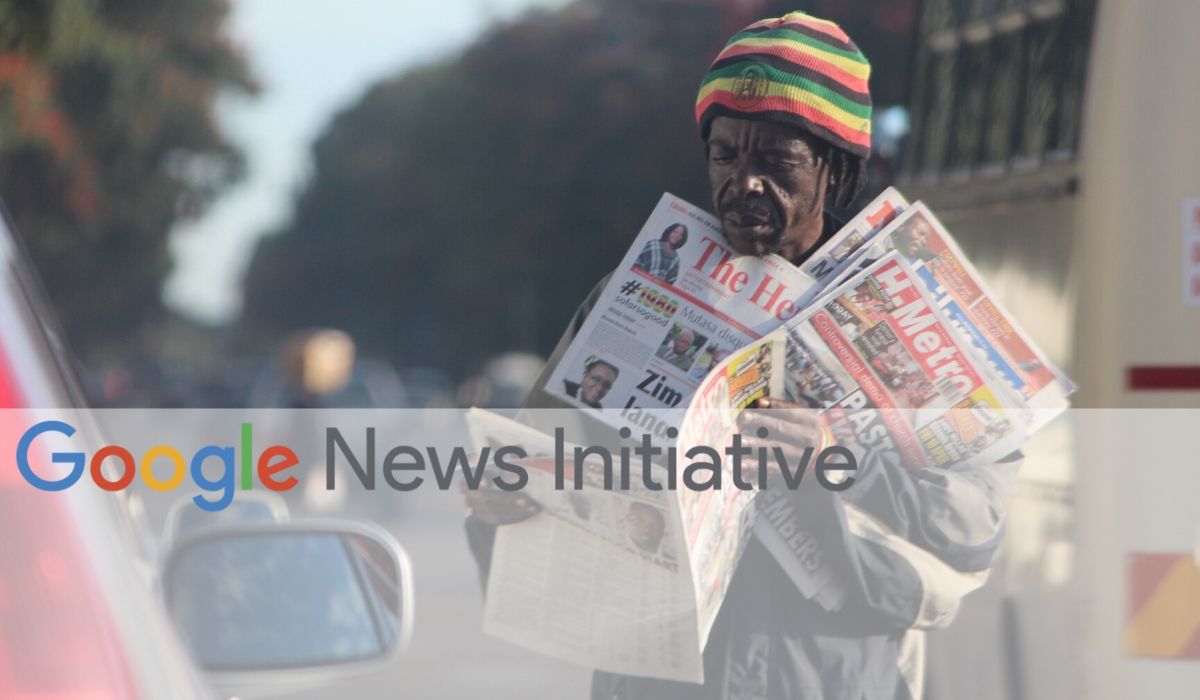Google has launched a Journalism Emergency Relief Fund for local newsrooms covering and affected by the Coronavirus pandemic around the world. African publications (including Zimbabwe) can apply.
According to Google, the fund will provide funding in the lower thousands (for smaller operations) and tens of thousands for large operations.
The fund is meant to help boost the capacity of newsrooms serving local communities (towns, cities, countries) with original news.
On what motivated the set up of the fund, Richard Gingras the VP of News at Google said:
Local news is a vital resource for keeping people and communities connected in the best of times. Today, it plays an even greater function in reporting on local lockdowns or shelter at home orders, school and park closures, and data about how COVID-19 is affecting daily life.
But that role is being challenged as the news industry deals with job cuts, furloughs and cutbacks as a result of the economic downturn prompted by COVID-19. The Google News Initiative wants to help by launching a Journalism Emergency Relief Fund to deliver urgent aid to thousands of small, medium and local news publishers globally.
You can read more and apply for the fund here.
Based on the Eligibility Requirements, all the established news publications in Zimbabwe – Daily News, Fingaz, NewsDay, The Independent, The Standard – and newer digital original news publications such as NewZimbabwe, NewZWire, ZimLive, Gemnation, CITE, Zim Morning Post, 263Chat and Technomag among others can apply and get the funding assistance during this period.
Funding
Funds will be disbursed in one installment, in US dollars or Euros depending on region. Funding amounts will range from the low thousands for small hyper-local newsrooms to low tens of thousands for larger newsrooms, with variations per region.
Application Eligibility Requirements
- Small and medium-sized news organizations producing original news for local communities during this time of crisis.
- Eligible applicants must have a digital presence and have been in operation for at least 12 months.
- The Fund is targeted at newsrooms employing between 2 – 100 full-time employee (FTE) journalists.
- Local publishers employing more than 100 FTE journalists can still apply and will be considered subject to Google’s discretion, based mainly on differing needs in different countries/regions.
- Organizations must be incorporated or registered in one of the eligible geographies. Unincorporated organizations must be based in one of the eligible geographies.
- Eligible applicants need to have a focus on core news provision, i.e. not lifestyle, sports, business-to-business.
- Eligible applicants can include for-profit or nonprofit traditional news organizations, digital natives, radio and/or TV broadcasters.
- Government-owned entities and individuals are not eligible to apply.
Eligible Regions
Organizations must be incorporated or registered in one of the eligible geographies (see below). Unincorporated organizations must be based in one of the eligible geographies. Please note that certain eligible geographies may have specific laws that apply to the receipt of funding from the Journalism Emergency Relief Fund and you are responsible for your compliance with any such laws, including, for example, by obtaining all necessary permissions from relevant authorities prior to receiving funding.
Eligible Geographies
- Asia Pacific
Australia, Bangladesh, Bhutan, Brunei, Cambodia, Cook Islands, East Timor, Easter Island, Fiji, Hong Kong SAR, India, Indonesia, Japan, Laos, Macau SAR, Malaysia, Maldives, Mongolia, Myanmar, Nepal, New Caledonia, New Zealand, Pakistan, Papua New Guinea, Philippines, Samoa, Singapore, Solomon Islands, South Korea, Sri Lanka, Taiwan, Thailand, Tokelau, Tonga, Tuvalu, Vanuatu, Vietnam- Europe
Austria, Belgium, Bosnia and Herzegovina, Bulgaria, Croatia, Cyprus, Czech Republic, Denmark, Estonia, Finland, France, Germany, Greece, Hungary, Iceland, Ireland, Italy, Latvia, Liechtenstein, Lithuania, Luxembourg, Malta, Montenegro, Netherlands, North Macedonia, Norway, Poland, Portugal, Romania, Serbia, Slovakia, Slovenia, Spain, Sweden, Switzerland, United Kingdom- Middle East and Africa
Algeria, Angola, Bahrain, Benin, Botswana, Burkina Faso, Burundi, Cameroon, Cape Verde, Central African Republic, Chad, Comoros, Congo (Brazzaville), Democratic Republic of Congo (DRC), Djibouti, Egypt, Equatorial Guinea, Eritrea, Ethiopia, Gabon, The Gambia, Ghana, Guinea, Guinea-Bissau, Iraq, Israel, Ivory Coast, Jordan, KSA, Kenya, Kuwait, Lesotho, Libya, Lebanon, Liberia, Madagascar, Malawi, Mali, Mauritania, Mauritius, Morocco, Mozambique, Namibia, Niger, Nigeria, Palestine, Oman, Qatar, Rwanda, Sao Tome and Principe, Senegal, Seychelles, Sierra Leone, Somalia, South Africa, Sudan, South Sudan, Swaziland, Tanzania, Togo, Tunisia, Turkey, Uganda, UAE, Western Sahara, Zambia, Zimbabwe- North America
Canada, United States, United States Overseas Territories- Latin America
Argentina, Bolivia, Brazil, Chile, Colombia, Costa Rica, Dominican Republic, Ecuador, El Salvador, Guatemala, Honduras, Mexico, Nicaragua, Panama, Paraguay, Peru, UruguaySelection Process
Initial selection of proposals will be done by teams of Google staff who have knowledge and experience in digital publishing and journalism in the regions detailed above. Applicants will then be contacted by email and offered funding before being asked to sign a funding agreement with Google. Selected applicants will then be required to enroll as a Google partner (if they are not already) in order to receive the funding.
Read the Frequently Asked Questions Here
